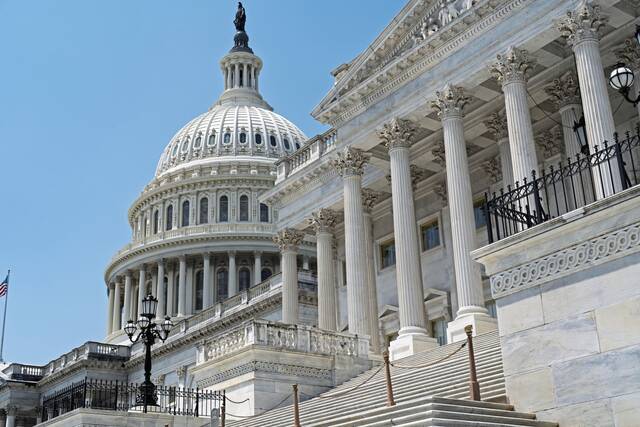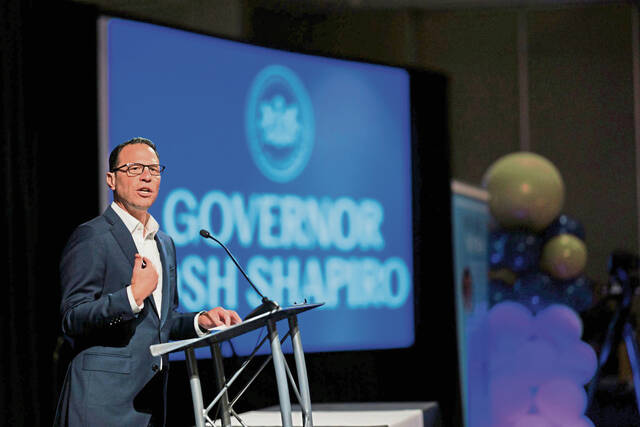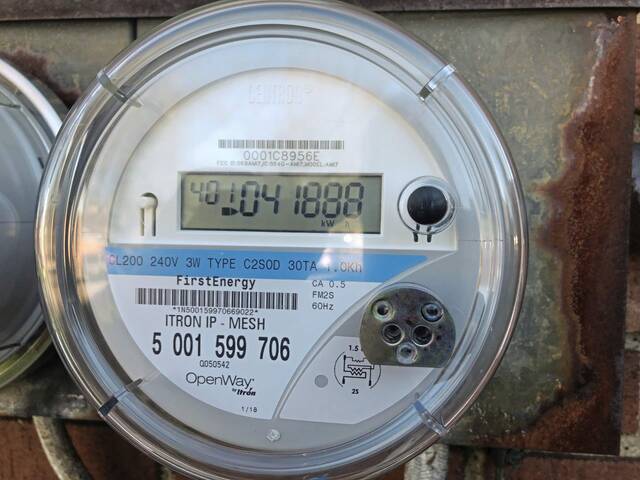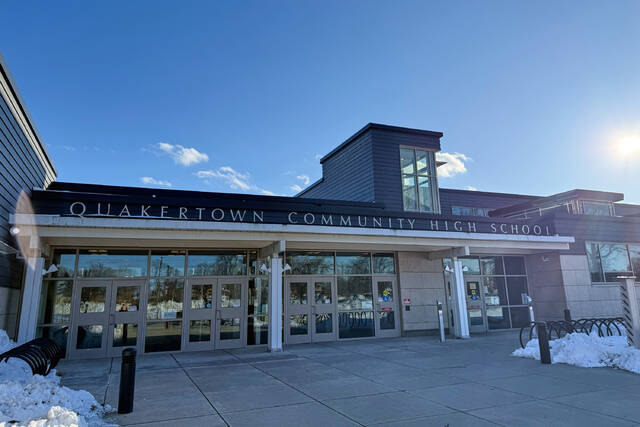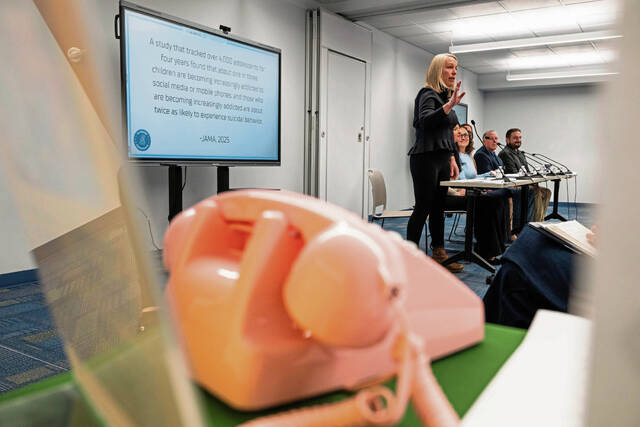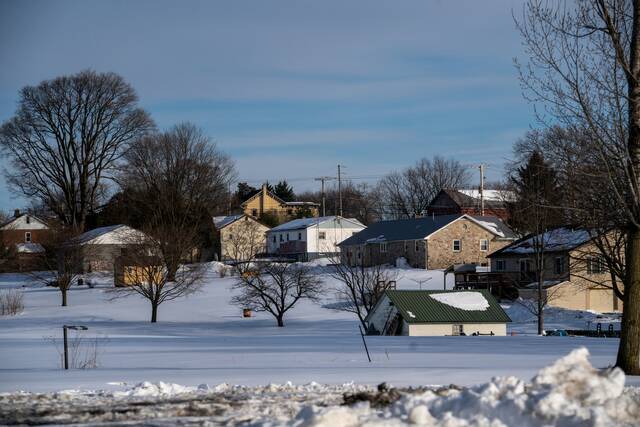Republican incumbents in Pennsylvania’s congressional delegation outraised their Democratic counterparts by nearly a 2-to-1 margin, on average, during the first half of the year, according to federal election filings.
Chris Borick, a political science professor at Allentown’s Muhlenberg College, said the fundraising gap is less of a reflection of any apathy by Democrats than it is a sign that the GOP is committed to protecting Republican-held seats targeted by Democrats.
“Democrats (in Pennsylvania’s congressional delegation) are not on the defensive as some Republicans are,” Borick said.
This spring, the Democratic Congressional Campaign Committee identified 35 Republican-held congressional seats across the country they think are “in play,” or winnable, in the 2026 election. Four of them are in Pennsylvania, including the 1st, 7th, 8th and 10th congressional districts.
All are in the eastern part of the state and have some of Pennsylvania’s narrowest gaps between registered Republicans and Democrats.
“That’s where the front line will be in the 2026 battle for control of the House,” Borick said.
“If Republicans want to maintain control of Congress, that starts in Pennsylvania,” added Berwood Yost, a political analyst from Lancaster’s Franklin & Marshall College.
The National Republican Congressional Committee also identified 26 Democrat-held seats that it thinks are prime for flipping to the GOP. None of those seats is in Pennsylvania.
The four Republicans being targeted by Democrats were the top fundraisers in Pennsylvania’s congressional delegation during the first half of the year, according to Federal Election Commission records: U.S. Rep. Brian Fitzpatrick of Bucks County (1st District) raised $2.535 million; U.S. Rep. Rob Bresnahan of Luzerne County (8th District), $1.724 million; U.S. Rep. Ryan Mackenzie of Lehigh County (7th District), $1.469 million; and U.S. Rep. Scott Perry of York County (10th District), $1.451 million.
“They know they are going to be targeted, so they are circling the wagons and raising lots of money,” Yost said.
U.S. Rep. Guy Reschenthaler, R-Peters, raised the fifth-most money in Pennsylvania’s delegation at $1.389 million — but he also spent the most money at $1.245 million. Factoring in money he carried over from last year, Reschenthaler ended the first half of the year with nearly $700,000 still left in his campaign account.
FEC records show Reschenthaler, the GOP’s chief deputy whip in the House, used his campaign account to make more than $150,000 in political contributions — 96% of it to the National Republican Congressional Committee, which works to get GOP candidates elected.
“Party leadership has always been expected to support other members in more challenging or perilous situations,” Borick said.
Reschenthaler, in his fourth term, represents a district that leans heavily Republican. The district includes all of Washington, Fayette and Greene counties and parts of Westmoreland, Indiana and Somerset counties.
Reschenthaler’s campaign did not return a message.
As for other Southwestern Pennsylvania members of the state’s congressional delegation:U.S. Rep. Mike Kelly, R-Butler, raised about $380,000 during the first half of the year, spent about $308,000 and ended the period with more than $1.1 million cash on hand.
U.S. Rep. Summer Lee, D-Swissvale, raised about $402,000, spent about $134,000 and had nearly $1.3 million cash on hand.
U.S. Rep. Chris Deluzio, D-Fox Chapel, raised more than $573,000, tops among Democratic members of Pennsylvania’s delegation. He spent nearly $477,000 and ended with about $450,000 cash on hand.
FEC records showed Pennsylvania’s 10 Republican incumbents raised a combined $11.8 million from January through June, or nearly $1.8 million per Republican.
The state’s seven Democratic incumbents, on the other hand, raised a combined $3.1 million, or about $440,000 per Democrat.
More than two dozen potential challengers across Pennsylvania had campaign accounts registered in the FEC database, though many had little or no money in their coffers. About a handful of the would-be candidates, however, raised six-figure sums during the first half of this year, the records show.
In the 7th District, one of the seats being targeted by Democrats, three would-be Democratic challengers raised between $200,000 and $325,000 apiece during the first half of the year — but those contributions combined still fell well short of the $1.5 million raised by the Republican incumbent Mackenzie, records show.
“At this point in the game, incumbents have a definite advantage. They can just focus on raising money and generating enthusiasm,” Yost said, noting many challengers must first get through tough primary battles.
“In that way, it can be an easier job to protect an incumbent than it is to oust an incumbent,” Yost added.
With control of the House at stake, Borick and Yost said they expect campaign spending by both major parties to explode in competitive districts after next spring’s primaries.
Republicans hold a 10-7 advantage over Democrats in Pennsylvania’s delegation. If Democrats win two of their four targeted races, that would swing the majority in their favor.
“It’s very much in the realm of possibility,” Borick said.


